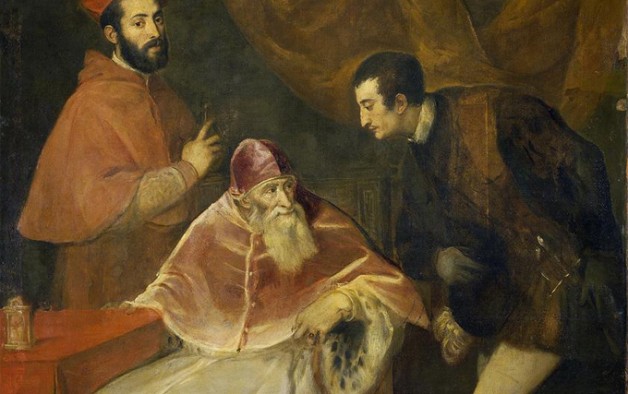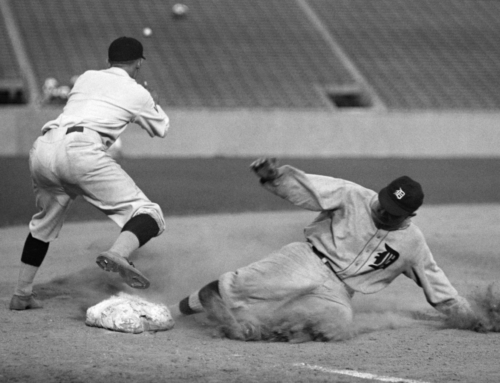The especial taste which the men of democratic ages entertain for physical enjoyments is . . . frequently combined with a species of religious morality: men wish to be as well off as they can in this world, without foregoing their chance of another. Some physical gratifications cannot be indulged in without crime; from such they strictly abstain. The enjoyment of others is sanctioned by religion and morality; to these the heart, the imagination, and life itself are unreservedly given up; till, in snatching at these lesser gifts, men lose sight of those more precious possessions which constitute the glory and the greatness of mankind. The reproach I address to the principle of equality, is not that it leads men away in the pursuit of forbidden enjoyments, but that it absorbs them wholly in quest of those which are allowed. By these means, a kind of virtuous materialism may ultimately be established in the world, which would not corrupt, but enervate the soul, and noiselessly unbend its springs of action.
—Alexis de Tocqueville, Democracy in America, 1835
A keen observer of human nature who was also a member of the waning French aristocracy, Tocqueville was ideally situated to comment on the rise of the new democratic state, to compare it with the old order of things, and to describe the life of its citizens in a way that was both sympathetic and critical. Of course, he did not think that “men of democratic ages” are, in themselves, so very different from men of other ages, but that, like all men, they are affected by changes in the world around them. Thus, in arguing for the claim made above, he observes that, whereas men in aristocratic societies are confined by birth to one or another social class and, consequently, are not particularly worried about “rising” or “falling” in life, those who live in a democratic society are presented with the chance of either improving their fortune or losing it, and so they naturally become intent on improving it. And, since they can go on improving it indefinitely, they are subject to the danger of becoming engrossed by the lesser things of this life, and of losing sight of those moral and spiritual realities “which constitute the glory and the greatness of mankind.” In other words, social mobility is not an unmixed blessing.
If, perish the thought, someone were to compile another of those special interest Bibles—The Green Bible, The Sportsman’s Bible, The Bible for Aardvarks, or, in this case, The Bible for Citizens of Modern Democratic Republics—Tocqueville’s words would in fact serve as a very helpful gloss on the Parable of the Sower: “Others are sown among thorns; they are those who hear the word, but the cares of the world, and the delight in riches, and the desire for other things, enter in and choke the word, and it proves unfruitful” (Mk 4:18–19). Yes, “in snatching at these lesser gifts, men lose sight of those more precious possessions which constitute the glory and the greatness of mankind.”
Note that both the Gospel and Tocqueville are speaking of what we might call “practicing Christians,” people who have heard the Word, who believe, and who, at some level, try to follow Christ. They even “strictly abstain” from what is gravely immoral in itself—not an easy feat in our culture! But, thinking that this is enough, and acting as if the faith were merely a negative set of prohibitions, they devote themselves so entirely to the things of this world—their work, their house, their hobbies, their comforts, and, perhaps especially, the “thorns” of their earthly cares and responsibilities—that they lose all taste for what transcends this world, for God and for prayer. All of that “religious stuff” becomes so much impractical rigamarole, a rather tiresome weekly routine, instead of what it could be: their daily bread, their daily sustenance.
Of course, we all go through times of spiritual weakness and lassitude, and if this “bare minimum” is all we can muster for a while, it is certainly better than nothing. But here’s the point: it’s a dangerous place to be; and, if we continue living this way for long, we should not be at all surprised to find ourselves, sooner or later, giving up the faith entirely.
One reason that we Catholics sometimes drift away from God is that we tend to regard the whole of our faith as a mere obligation, as one more item on the agenda, whereas it is meant to be perfect rest. Christ says to us, “Come to me, all you who labor and are heavy laden, and I will give you rest,” and we say, “Do I have to?”—like little children who refuse to take a nap. So often we seek relaxation and comfort in anything, everything but prayer. So often we forsake the fountain of living waters in order to hew out cisterns for ourselves, “broken cisterns, that can hold no water” (Jer 2:13). This Advent, let’s turn off the television, the computer, the radio; let’s take a break from our restless recreations; let’s pray the Rosary, or make a visit to church, or go to daily Mass, or read a spiritual book; let’s be still and wonder at God’s work, and listen to the word He wants to speak to us:
Comfort, comfort my people, says your God. Speak tenderly to Jerusalem, and cry to her that her warfare is ended, that her iniquity is pardoned.
Image: Titian, Portrait of Pope Paul III with Nephews







